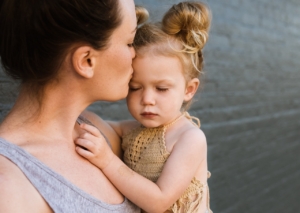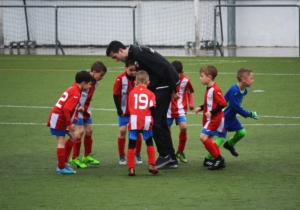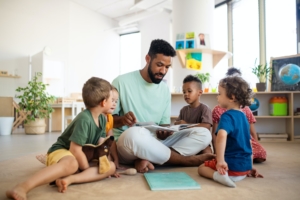Healing for a Broken Family
No family is immune to problems. The dynamics of one family may not work for another. When situations come up that cause emotional damage, it can be challenging to navigate the healing process. In some cases, the damage may lead to estrangement. When this happens, it is often called a broken family. Having unhealthy relationships can also fall into this category. There is hope for healing a broken family.
Above all, love each other deeply, because love covers over a multitude of sins. – 1 Peter 4:8, NIV
Having a broken family can leave scars. Family relationships break in such an extreme manner that it may seem impossible to fix. These broken relationships tend to leave people feeling abandoned. Acknowledging the cause is the first step on the road to healing for a broken family.
Understanding What Breaks a Family
The brokenness that families experience is not easily defined. What breaks one family could strengthen another. It’s a matter of understanding the core dynamic of the family as a whole. This could include heritage, culture, and spiritual beliefs.
 A devastating loss There are times that the loss of a family member can cause a family to become estranged and broken. When there is a loss it affects every person in different ways. When the family faces the loss they must learn a new dynamic. This isn’t always easy. Grief can cause many emotions and until it is processed it is hard to understand how to navigate healing as a broken family.
A devastating loss There are times that the loss of a family member can cause a family to become estranged and broken. When there is a loss it affects every person in different ways. When the family faces the loss they must learn a new dynamic. This isn’t always easy. Grief can cause many emotions and until it is processed it is hard to understand how to navigate healing as a broken family.
Disregard for boundaries This is typical between parents and children or siblings. Each family member needs to respect and understand the boundaries that are present. Boundaries aren’t a way of saying “I don’t need you in my life.” They are in place to create a healthy lifestyle.
Abuse Family members who have faced abuse often choose to sever relationships. Whether it is physical or sexual abuse, the pain becomes a challenge to overcome for that person.
Control issues Parents don’t always intend to be controlling. Most of the time they are trying to make sure their children are getting what they need to thrive. When it carries over into the child’s personal life it can cause a relationship to become severed.
Financial issues Finances play a big part in our lives. As children, we depend on our parents financially. When we aren’t instructed on the positive ways to manage money we can find ourselves in a dysfunctional home due to financial hardships.
Difference in faith and other beliefs Family members don’t always have the same beliefs. This can cause a severed relationship when there is a lack of respect for each other’s chosen faith or political beliefs.
Issues with mental health When family members struggle with mental health issues it can result in estrangement. To find healing in a broken family due to mental health issues those issues must be addressed. This could also involve a family session to identify the way to navigate the relationships.
Disregarding the act of apologizing Deciding to navigate healing the relationship is a big step. If this choice is met with a disregard for apologizing, then the broken relationship becomes harder to mend.
What can heal a broken family?
Healing begins with awareness. Taking time to understand what caused the hurt and if there is a way to repair the damage is one step in the journey to navigate healing for a broken family. It won’t happen overnight, but with intentional choices, it can become healed. This choice isn’t something that comes from one side of the relationship. Both parties must be willing to pursue the pathway to healing.
Have a conversation about the issue
 Having a hard conversation about what happened is the place to start. Without understanding what happened there is no way to understand what needs to be done to repair the damage. Honest and open communication is the best way to accomplish this conversation. This conversation includes listening as much as speaking. Be intentional about the conversation.
Having a hard conversation about what happened is the place to start. Without understanding what happened there is no way to understand what needs to be done to repair the damage. Honest and open communication is the best way to accomplish this conversation. This conversation includes listening as much as speaking. Be intentional about the conversation.
Stay away from the blame game
Trying to lay the blame on each other doesn’t lead to healing. Most of the time, it will only cause even more resentment and sever the relationship. It is understandable to want to find a place to put the blame, but the simple fact is we are all human. As humans we make mistakes and in most instances of broken relationships, it is not a one-sided issue.
Let no debt remain outstanding, except the continuing debt to love one another, for whoever loves others has fulfilled the law. – Romans 13:8, NIV
Extend forgiveness and walk in patience
Healing comes from forgiveness. Giving and seeking forgiveness entails patience. It takes time to understand each person’s role in the situation. People don’t change overnight so we have to be patient as we allow each other to examine our hearts and understand our actions.
For if you forgive other people when they sin against you, your heavenly Father will also forgive you. – Matthew 6:14, NIV
Work on restoring trust and relationship harmony
 Just as families can find themselves out of harmony with each other, they can restore that peace. It takes work on the part of each individual in the family. This requires motivation, knowledge, persistence, and acknowledgment of the reality that no one is perfect. When the balance is restored the trust will likely be restored as well. Remember, something that becomes broken won’t look like it did before the damage. This doesn’t mean it can’t be fixed.
Just as families can find themselves out of harmony with each other, they can restore that peace. It takes work on the part of each individual in the family. This requires motivation, knowledge, persistence, and acknowledgment of the reality that no one is perfect. When the balance is restored the trust will likely be restored as well. Remember, something that becomes broken won’t look like it did before the damage. This doesn’t mean it can’t be fixed.
Get rid of all bitterness, rage and anger, brawling and slander, along with every form of malice. Be kind and compassionate to one another, forgiving each other, just as in Christ God forgave you. – Ephesians 4:31-32, NIV
More tips to help heal broken families
There are ways to implement the above strategies to help heal the brokenness.
- Establish acceptable behavior expectations.
- Don’t expect behavior that hasn’t been taught.
- Understand family behavior patterns.
- Set clear boundaries for honest communication.
- Understand that you cannot fix a person’s behavior.
- Define and share the expected emotional needs.
- Engage in a body of Christ that can be supportive and loving.
- Maintain the view of equality among adults.
- Understand that God wants to see the family restored.
- Pray together as a family.
- Read and meditate on God’s Word.
- Continue to seek to love as God loves.
- Seek professional help from a Christian counselor.
When the Relationship is Over
The reality is that there are times when even after doing all the things to navigate toward healing, the relationship is over. Even though there has been forgiveness and acceptance, there are people who may choose to remain estranged. This is not to say that person is wrong. Sometimes it is best that boundaries mean a distant relationship.
 When a family member chooses to end a relationship the only thing that you are in control of is your reaction to that decision. You must understand that you aren’t to blame for their choice. Once you have pursued the avenue of forgiveness, it is up to them whether or not they receive that extended hand of forgiveness.
When a family member chooses to end a relationship the only thing that you are in control of is your reaction to that decision. You must understand that you aren’t to blame for their choice. Once you have pursued the avenue of forgiveness, it is up to them whether or not they receive that extended hand of forgiveness.
You don’t have to expect anything from them nor do you have to keep a space for them in your emotional well-being. The constant stress about a relationship that is over is not healthy mentally, emotionally, or physically.
It is okay to let go of that relationship and give it space when you can navigate the issues. Otherwise, you may find you continue to experience anxiety from the stress of trying to pretend everything is fine.
Next Steps: Christian Family Counseling
Every family has a problem to face on occasion. The ability of the family to navigate those problems without becoming estranged depends on how the dynamics of that family work. There are instances when it doesn’t matter how well the family gets along, there are issues that cause severe damage. Understanding how to navigate the hurts of a broken family takes patience and willingness.
If you feel like you need help with navigating how to heal as part of a broken family, reach out to us at California Christian Counseling. Your counselor can create a Scripture-based plan of treatment to help you navigate the hurt and emotions that you may be facing.
See to it that no one falls short of the grace of God and that no bitter root grows up to cause trouble and defile many. – Hebrews 12:15, NIV
Photos:
“Mother and Daughter”, Courtesy of knuckles_echidna, Pixabay.com, CC0 License; “Crying Man”, Courtesy of victoruzihben, Pixabay.com, CC0 License; “Couple Hugging”, Courtesy of lambhappiness, Pixabay.com, CC0 License; “Holding Hands”, Courtesy of Pexels, Pixabay.com, CC0 License;

 Providing a safe and loving home The child you’re adopting can come from any number of circumstances and family history. Every child deserves the love of a family. One of the joys of being an adoptive parent is in providing a welcoming, lifelong home to a child. Being able to provide a safe household with loving parents is a huge blessing that the child is being made part of.
Providing a safe and loving home The child you’re adopting can come from any number of circumstances and family history. Every child deserves the love of a family. One of the joys of being an adoptive parent is in providing a welcoming, lifelong home to a child. Being able to provide a safe household with loving parents is a huge blessing that the child is being made part of. People’s unhelpful or inappropriate questions When your adoptive child doesn’t look like you or your partner, your family may be exposed to questions that run the gamut from well-intentioned, to malicious, and from mildly inappropriate and uncomfortable to way over the line.
People’s unhelpful or inappropriate questions When your adoptive child doesn’t look like you or your partner, your family may be exposed to questions that run the gamut from well-intentioned, to malicious, and from mildly inappropriate and uncomfortable to way over the line. One of the gifts a parent can pass on to their child is the gift of the gospel. The Lord places children in our care so that we can nurture them and mold their character. A person’s personality is shaped by their DNA, but their character and whether they are people of virtue is determined by nurture. The child in your care, whether they are there by adoption or by birth, has the opportunity to know the Lord Jesus through you and how you nurture them.
One of the gifts a parent can pass on to their child is the gift of the gospel. The Lord places children in our care so that we can nurture them and mold their character. A person’s personality is shaped by their DNA, but their character and whether they are people of virtue is determined by nurture. The child in your care, whether they are there by adoption or by birth, has the opportunity to know the Lord Jesus through you and how you nurture them. Through open communication with your child, and by being supportive, consistent, present, and curious, you can set your family up for success. Having consistent routines, building new family traditions, and embracing and retelling your story as a complex family can all help you appreciate the family the Lord has given you.
Through open communication with your child, and by being supportive, consistent, present, and curious, you can set your family up for success. Having consistent routines, building new family traditions, and embracing and retelling your story as a complex family can all help you appreciate the family the Lord has given you.
 Our children are watching us more than we think, and we must model our faith for them to witness. In the Daily Grace Gospel at Home magazine, Tiffany Dickerson states that “when we make these spiritual disciplines our priority, a natural overflow of discipleship occurs when our children witness our love for the Lord and others.”
Our children are watching us more than we think, and we must model our faith for them to witness. In the Daily Grace Gospel at Home magazine, Tiffany Dickerson states that “when we make these spiritual disciplines our priority, a natural overflow of discipleship occurs when our children witness our love for the Lord and others.” I encourage you to take a deep breath and trust that God loves your child even more than you do. The questioning that happens in our faith is part of our spiritual development and it’s important that we encourage and support our children through this process rather than use fear or punishment.
I encourage you to take a deep breath and trust that God loves your child even more than you do. The questioning that happens in our faith is part of our spiritual development and it’s important that we encourage and support our children through this process rather than use fear or punishment. In the same Daily Grace article, Tiffany Dickerson reminds us that “Jesus is the point of our discipleship. It does not have to be hard, filled with charts, graphs, and items on a list to check off. It simply needs to be intentional. As parents, we not only grow in our walk with the Lord, but we pray for clarity to see those moments when we can plant the seeds of the gospel in our children’s lives.”
In the same Daily Grace article, Tiffany Dickerson reminds us that “Jesus is the point of our discipleship. It does not have to be hard, filled with charts, graphs, and items on a list to check off. It simply needs to be intentional. As parents, we not only grow in our walk with the Lord, but we pray for clarity to see those moments when we can plant the seeds of the gospel in our children’s lives.” When I got older, I realized that my parents were repeating behaviors they had learned from their parents. After having my two daughters, I realized that if I didn’t change how I responded to my kids, I was destined to continue the same destructive cycle.
When I got older, I realized that my parents were repeating behaviors they had learned from their parents. After having my two daughters, I realized that if I didn’t change how I responded to my kids, I was destined to continue the same destructive cycle. Temperament describes a child’s emotional and behavioral style. It’s their natural way of being and how they respond to others and the world around them. Temperament has a lot to do with how easily children can adapt to situations. Some children express anger more often than others. They may be more sensitive to how they are spoken to or looked at. If adults laugh at them or exacerbate them, they might withdraw, fight back, or cry.
Temperament describes a child’s emotional and behavioral style. It’s their natural way of being and how they respond to others and the world around them. Temperament has a lot to do with how easily children can adapt to situations. Some children express anger more often than others. They may be more sensitive to how they are spoken to or looked at. If adults laugh at them or exacerbate them, they might withdraw, fight back, or cry. As parents, we can help our children by shifting our focus away from the external behavior to what might be lying underneath. By exploring the cause of the pain and providing comfort so that they can regulate their bodies, we can help them become emotionally mature.
As parents, we can help our children by shifting our focus away from the external behavior to what might be lying underneath. By exploring the cause of the pain and providing comfort so that they can regulate their bodies, we can help them become emotionally mature. When my daughters were young I had quite a temper. I would get angry when I cleaned the house and others weren’t helping. I would get angry when family members were on the couch watching TV and I felt that I never had time to rest. I would get angry when my kids had tantrums because it was such an inconvenience to my daily routine. I got angry a lot, and I was usually in a foul mood most of the time.
When my daughters were young I had quite a temper. I would get angry when I cleaned the house and others weren’t helping. I would get angry when family members were on the couch watching TV and I felt that I never had time to rest. I would get angry when my kids had tantrums because it was such an inconvenience to my daily routine. I got angry a lot, and I was usually in a foul mood most of the time. The fact that you’ll be moving is obvious enough, but what isn’t always obvious is why. Take the time to explain to your children, at an age-appropriate level, the reasons for the move, and then take time to listen to their concerns. Validate any concerns that they have and address these as honestly as you can. Give them room to express themselves, whether by talking, drawing, or writing.
The fact that you’ll be moving is obvious enough, but what isn’t always obvious is why. Take the time to explain to your children, at an age-appropriate level, the reasons for the move, and then take time to listen to their concerns. Validate any concerns that they have and address these as honestly as you can. Give them room to express themselves, whether by talking, drawing, or writing. Obsessions are repetitive, involuntary, fear-producing, thoughts that the child does not want to have but cannot stop thinking about or control, and that can have a paralyzing effect that prevents him or her from thinking about anything else.
Obsessions are repetitive, involuntary, fear-producing, thoughts that the child does not want to have but cannot stop thinking about or control, and that can have a paralyzing effect that prevents him or her from thinking about anything else. Treatment options
Treatment options The teen years are full of changes, from physical changes that we can visualize, like height and hairstyle choices, to those we cannot see, like their thoughts and feelings. They, too, are caught in the middle of this just as much as we are, full of hormones, feelings, and pressures. This can make life feel like a roller coaster for us and them!
The teen years are full of changes, from physical changes that we can visualize, like height and hairstyle choices, to those we cannot see, like their thoughts and feelings. They, too, are caught in the middle of this just as much as we are, full of hormones, feelings, and pressures. This can make life feel like a roller coaster for us and them!
 Ask for help
Ask for help
 A child who erupts in anger over a missed goal may be having social and emotional issues beyond the coach’s ability to navigate. However, by paying attention to a player’s response, the coach can bring the player’s behavior to light with a trusted school counselor or parent.
A child who erupts in anger over a missed goal may be having social and emotional issues beyond the coach’s ability to navigate. However, by paying attention to a player’s response, the coach can bring the player’s behavior to light with a trusted school counselor or parent.
 Simply being aware of these developmental aspects daily can help a teacher see beyond academics to the whole child. Teaching is stressful on any given day, but remembering that the children and adolescents they teach are still developing in every way fosters compassion and awareness.
Simply being aware of these developmental aspects daily can help a teacher see beyond academics to the whole child. Teaching is stressful on any given day, but remembering that the children and adolescents they teach are still developing in every way fosters compassion and awareness. Sometimes you find yourself in the middle of bringing together two families. For whatever reason, you are now navigating a home life with a mixture of feelings and habits. What seems like an angry child could be a child who is scared of losing everything that was comforting to them. Creating a home for a blended family takes patience and grace.
Sometimes you find yourself in the middle of bringing together two families. For whatever reason, you are now navigating a home life with a mixture of feelings and habits. What seems like an angry child could be a child who is scared of losing everything that was comforting to them. Creating a home for a blended family takes patience and grace.  some life-changing events it isn’t always easy for them. They still have to learn to navigate the change in the best way they can. Losing a parent is traumatic for children. Whether it is by divorce or death, not having that parent in their everyday life can cause lasting emotional problems.
some life-changing events it isn’t always easy for them. They still have to learn to navigate the change in the best way they can. Losing a parent is traumatic for children. Whether it is by divorce or death, not having that parent in their everyday life can cause lasting emotional problems.
 Relationship changes. When children find themselves in a new relationship, they may seem distant and reserved. The changes in the family will bring changes in the roles of each person. A child who was the youngest may now find themselves as being the oldest.
Relationship changes. When children find themselves in a new relationship, they may seem distant and reserved. The changes in the family will bring changes in the roles of each person. A child who was the youngest may now find themselves as being the oldest.